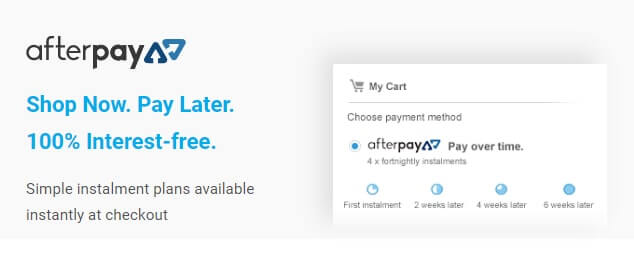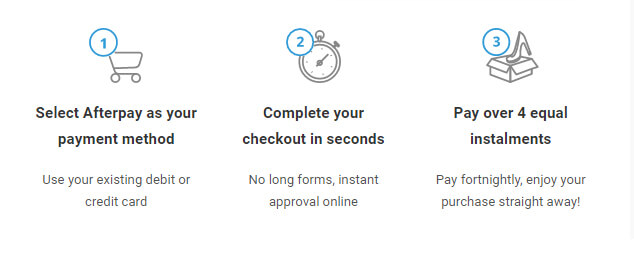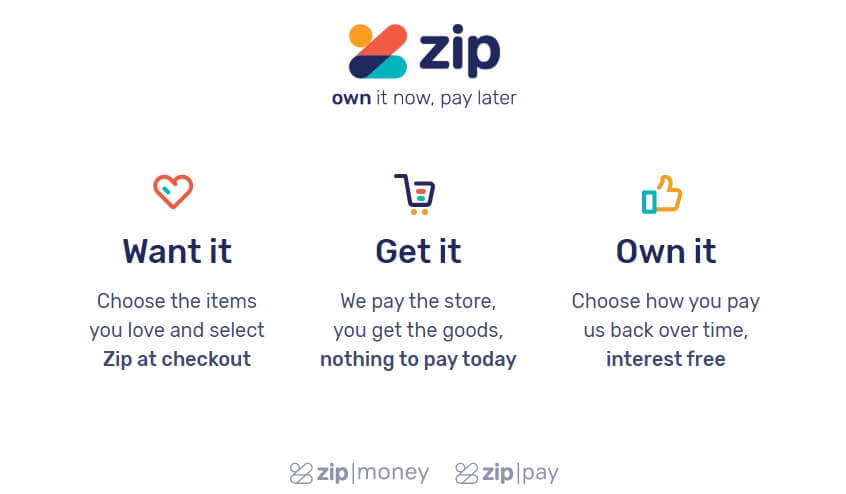Puppy Training & Socialisation: An Interview with Gaz Jackson, an Australian Internationally Acclaimed Dog Trainer
Dogs that lack proper socialisation and training during their puppyhood could develop behavioural problems that may be difficult to correct later in their lives.
These problems are the popular nuisance barking, aggression towards other animals and humans, pulling on leads during walks, digging up holes in the garden and many more…
Without proper training and exposure to other animals, people and environment, a puppy will grow into an anxious, suspicious and paranoid dog who keeps on barking at unnecessary things and chewing things off.
In a new episode of TDL TV on Facebook Live, Gaz Jackson will share his life-long and professional insights on puppy training and socialisation - vital to prevent dog aggression.
Getting a new puppy is very popular this Christmas season - we’re sure that a lot of people will benefit from this content since training your puppy is really important and puppy socialisation is vital for your new dog’s development.
Just remember that getting a new pup or any dog is a lifetime commitment and it is not just for the holidays. So, it is best that you start learning how to train your new puppy and when to start his or her socialisation progress… and eventually develop a well-behaved dog.
When Should I Start Training & Socialising My Puppy?
 Start early - between 3 weeks and 16 weeks of a puppy’s age is a critical period in socialisation and training - dog owners are highly encouraged to have their pups trained and socialised during this phase.
Start early - between 3 weeks and 16 weeks of a puppy’s age is a critical period in socialisation and training - dog owners are highly encouraged to have their pups trained and socialised during this phase.
Raising a dog is, once again, a lifetime commitment. Just like rearing a child - it needs regular time and effort if you want your dog to grow into a well-adjusted and a well-behaved dog.
Between 3 - 16 weeks of age, your puppy needs to encounter a wide variety of people, other animals and situations - these encounters should be positive and it is best if you begin slowly and gradually increase your dog’s exposure to pleasant encounters.
Now, it is also highly recommended that your pup has to been fully vaccinated before you bring him to public places (we’ll discuss this more later).
Therefore, you need to put a bit of thought into how you could put your new pup’s need for education and socialisation into your daily schedule.
How To Housetrain a Puppy?
 Training a new pup could be difficult and consumes a bit of your time than usual… others prefer to enroll their dogs to a puppy training class wherein a dog trainer can closely monitor your dog’s behaviour and progress, especially how they interact with other dogs and humans (we will talk more about this later on).
Training a new pup could be difficult and consumes a bit of your time than usual… others prefer to enroll their dogs to a puppy training class wherein a dog trainer can closely monitor your dog’s behaviour and progress, especially how they interact with other dogs and humans (we will talk more about this later on).
However, there are a few basic yet valuable things that you could and should do on your own, being the owner of the pup.
-
1. Show your puppy that you are the Alpha
This will greatly motivate your dog to be positively trained. Dogs are pack animals and having a leader that they can please is a great motivation - they like to follow their leader and make the Alpha happy. Basically, this makes dogs happy as well.
-
2. Be consistent with your training
Actions and reactions play a vital role in training a puppy - you have to be always clear and consistent. So, your puppy will be well-guided and your training will be less difficult as time goes by.
If your puppy does the right behaviour or anything that you want him or her to do, always make sure to reward your pup with verbal praise, pat or food treats. On the contrary, if your puppy does the wrong thing, make it clear that you are not happy and correct the mistake - DO NOT HIT YOUR DOG.
-
3. Correct mistakes immediately
 Catching a dog in the act while doing an unwanted behaviour is necessary in properly correcting your pup’s mistake and immediately reinforcing the positive behaviour.
Catching a dog in the act while doing an unwanted behaviour is necessary in properly correcting your pup’s mistake and immediately reinforcing the positive behaviour.Dogs cannot connect punishment or correction to the wrong act that has been done hours and even minutes ago.
Dogs are not spiteful beings but please do not hit your pup - the best that you can do is distract your dog from the unwanted behaviour and give him something new to do.
For example, if you catch him chewing your shoe or nibbling on your furniture, say ‘NO’ in a sharp tone. If your puppy stops, praise him and give him something to do such as a ‘sit’ command or a ‘come’ command and always praise your dog if he responds.
-
4. Puppy treats - use it wisely
You should know that when training a puppy, there are no free rides on food treats. So, make your puppy earn it - only give a treat if your pup responds to your command.
Then, this should not always be the case - gradually replace the treats with praise. So, if your dog responds to a command, give the treats every other time or every third time a command is followed.
Eventually, your puppy will work for your praise and for the occasional food treat.
-
5. Make sure your puppy becomes familiar with his or her name
 Name familiarity at a young age is important in a dog’s life - this is very useful with recall training which is very important for you and your dog’s safety.
Name familiarity at a young age is important in a dog’s life - this is very useful with recall training which is very important for you and your dog’s safety.Say your puppy’s name over and over during a pleasant encounter such as when you’re petting him or playing with him or while he is eating.
Never shout your puppy’s name when you are angry because it is important that he associates his name with pleasant things.
Lastly, be consistent with your puppy’s name - tell your family and friends to call him Patrick if that’s the name you chose for him… and not Pat Pat, Patty or baby boy - this will only confuse your pup.
-
6. Discourage the biting habit a.k.a. ‘Mouthing’
 Mouthing is very common with pups as they are teething. However, your puppy should learn at an early age that it is wrong to bite people.
Mouthing is very common with pups as they are teething. However, your puppy should learn at an early age that it is wrong to bite people.To establish a biting inhibition with your dog, whenever he or she attempts to bite you for play or mouth on you, make a loud, high-pitched yelp and turn away from your pup - this is more effective than a reprimand or tolerating a rough play.
Even gentle mouthing should be discouraged. Ignoring your pup after the biting will help him understand that it is a bad or unwanted behaviour. Thus, game over - dogs do not like being ignored.
What is Puppy Socialisation and Why is it Important?
 Social skills is important whether you’re a human or a dog… and your puppy has to learn to properly socialise to both species - humans and dogs. So, he could become a confident and trusted dog.
Social skills is important whether you’re a human or a dog… and your puppy has to learn to properly socialise to both species - humans and dogs. So, he could become a confident and trusted dog.
Puppy socialisation involves meeting different:
-
• Adults
-
• Children
-
• Other dogs
-
• Other animals (like cats and horses)
And being in new environments and experiencing new pleasant situations. Once again, these encounters of socialising at an early pup’s age should be pleasant in order to develop a confident and trusting dog.
As mentioned earlier, the best time to hone your pup’s social skills is during the crucial development period which is between 3 and 16 weeks.
Also, this is your pup’s vaccination period and your vet will advise that you should keep your dog away from public places and other dogs.
Thus, it is important that you will find other ways to hone your puppy’s socialisation skills.
Here’s how:
-
 • Invite family and friends to your home so your pup could get used to folks with different races, sexes, builds, heights and scents.
• Invite family and friends to your home so your pup could get used to folks with different races, sexes, builds, heights and scents. -
• Advise them to wear different types of clothing and arm them with a few treats for your puppy.
-
• Ask your family and friends to bring their friendly dogs who are up-to-date with their vaccinations.
-
• Take your puppy on a short car ride so he could see the world and get accustomed to loud noises of travel, especially cars and motorbikes.
-
• And once your puppy’s vaccinations are completed, it’s time to step things up.
-
• Visit dog-friendly places such as cafes, shops and pubs and bring your puppy with you.
-
• Walk your puppy on a lead - start with pavements on quiet streets and build up to busy traffic roads.
-
• Ask your vet for any puppy parties that you can join in your area so your pooch can socialise with dogs at his age.
-
• Bring your puppy to beaches… and other new environments you that can think of (just make sure to check local regulations about bringing dogs).
And here are things to remember when letting a puppy socialise especially if your pup is shy:
-
 • Your puppy should be able to approach people on his own pace and comfort... and retreat if he wants to. So, never pick up your pup and pass him to someone when he’s not ready.
• Your puppy should be able to approach people on his own pace and comfort... and retreat if he wants to. So, never pick up your pup and pass him to someone when he’s not ready. -
• If your puppy tries to look smaller and avoids eye contact, with his tail held low, ears back, yawning and excessively licking his lips - he is anxious. So, take him out from whatever or whomever he is anxious about.
-
• Contrastingly, if he is standing straight and his tail is wagging, acting like he’s ready to investigate - he is relaxed. Just make sure to monitor your pup when he is playing with other dogs.
When Should You Start Puppy Training Classes?
 Between 7 and 12 weeks (when vaccinations are usually completed) is the ideal time to enroll your pup in a training class.
Between 7 and 12 weeks (when vaccinations are usually completed) is the ideal time to enroll your pup in a training class.
Dog training classes are recommended because they involve different realistic distractions and dog trainers can help your pup focus on commands even better, despite the teeming distractions around.
Puppy Training Classes can be an important part of ensuring that your dog is properly socialised as he or she will have a better chance of encountering other dogs and other people during class.
Also, it has been observed that puppies who attended training classes were less likely to show symptoms of separation anxiety and/or nervousness.
Thus, it is important to find a good and reliable training class to also teach you how to properly stimulate your puppy and show you different methods that you can use to prevent and correct negative behaviours.
If you have any more questions and concerns about Puppy Training and Socialisation, join us during TDL TV on Facebook Live with Gaz Jackson and we will answer your queries.

 The Dogline
The Dogline





















